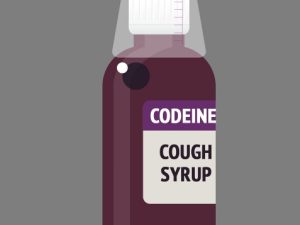Individuals who have been to rehab often experience discrimination in society. As a result, a good number choose to keep their rehab experience to themselves. If you have been to drug rehab and are currently employed, you might be battling with the decision of whether to inform your employer about your rehabilitation.
Legally you are not bound to disclose your rehabilitation to anyone, including your employer. However, it is essential to note that addiction is an illness, and relapses can happen. If your employer does not know about your history with drug addiction, they have difficulty understanding your struggle with addiction should a relapse occur.
However, your employer has no right to discriminate against you if you have been to drug rehab or are struggling with addiction. Some laws govern how individuals struggling with addiction should be treated in the workplace.
What does the law Say?
 Individuals struggling with drug or alcohol addiction are protected by the Americans with Disabilities Act (ADA) and the Rehabilitation Act of 1973. In essence, an employer is prohibited from discriminating against you if you struggle with an addiction or have been in rehab.
Individuals struggling with drug or alcohol addiction are protected by the Americans with Disabilities Act (ADA) and the Rehabilitation Act of 1973. In essence, an employer is prohibited from discriminating against you if you struggle with an addiction or have been in rehab.
However, if you are currently using illegal substances, your employer can take action against you. The legal protection only applies if you have had a history of substance abuse but no longer using illegal substances. Should you need to go to rehab, the law entitles you to up to 12 weeks of unpaid leave to receive treatment.
Given the provisions of the law, although not mandatory, it would be advisable to inform your employer of your history with addiction because this would not impact your employment status. However, there is always a possibility that your employer’s perception of you could change, and this could, in turn, affect how you relate with them, making the work environment unconducive.
According to the Americans with Disabilities Act, an employer cannot fire, refuse to hire or discriminate against an employee struggling with an addiction. The law also protects employees recovering from drug addiction and alcoholism because addiction is categorized as a disability.
However, as an employee, the law does not protect you from current alcohol and drug use when it affects your ability to work. This means that your employer can terminate your services if you show up at work drunk or under the influence of illegal drugs, cannot perform your duties because you are under the influence of drugs or alcohol, or are a danger to yourself to other employees.
The ADA Act also demands that an employer provide practical accommodations to all employees struggling with addiction and meet the requirements of having a disability. If you are currently receiving treatment for an addiction, your employer can modify the work schedule so that you’re able to get treatment or even attend a 12-step program. Section 501 of the Rehabilitation Act requires every employee struggling with alcohol-related issues to get addiction treatment, failure to lose the protection provided in the Act.
How to Disclose I went to Drug Rehab with my Employer
While the law protects you from discrimination, it is crucial to prepare to break the news of your rehabilitation to your employer. Some of the strategies that come in handy include:
 Have a conversation with your employer as soon as possible. When your employer is aware that you have a history of addiction and have been to drug rehab, they will understand and help create a conducive work environment to prevent relapse.
Have a conversation with your employer as soon as possible. When your employer is aware that you have a history of addiction and have been to drug rehab, they will understand and help create a conducive work environment to prevent relapse.- Before talking with your employer, do your research and find out if there are company policies regarding the matter. If not, talk with Human Resources for guidance on how to go about the issue.
- Do not disclose your history in drug rehab to your colleagues before talking to your employer. Office gossip can spiral out of control and affect how the message will be received by your employer later.
- Show initiative that you’re determined to stay healthy and clean. Be part of a support group, attend meetings and perform at work. This will win their confidence and demystify any perceptions they might have.
- Be honest with your employer about your recovery. If you need to take time off to get help, do not be afraid to ask. If you have a history of substance abuse and have been to drug rehab, the possibility of a relapse is accurate. If you need help even after rehabilitation, you should be able to get it.
Getting Help
Some employers offer Employment Assistance Programs (EAP) that allow employees struggling with addiction to get screening, follow-up care, and treatment referrals. Before disclosing to your employer that you have been to drug rehab, first find out what employment policies have been put in place to support individuals struggling with addiction.
If you have a history of drug addiction, personal and family issues might cause a relapse, making it difficult to perform your tasks at work. Life is unpredictable, and we all go through challenges, be it financial, emotional, marital, to name but a few. For individuals struggling with addiction, such challenges can take a more significant toll on them.
It is, therefore, important to not only let your employer know about your history in drug rehab. Find out the support put in place to assist you and be honest about how you’re faring in the recovery. While your employer might not be happy with the fact that you’ve been to drug rehab, as long as you strive to stay sober and do your work well, the law will protect you from any repatriation.



